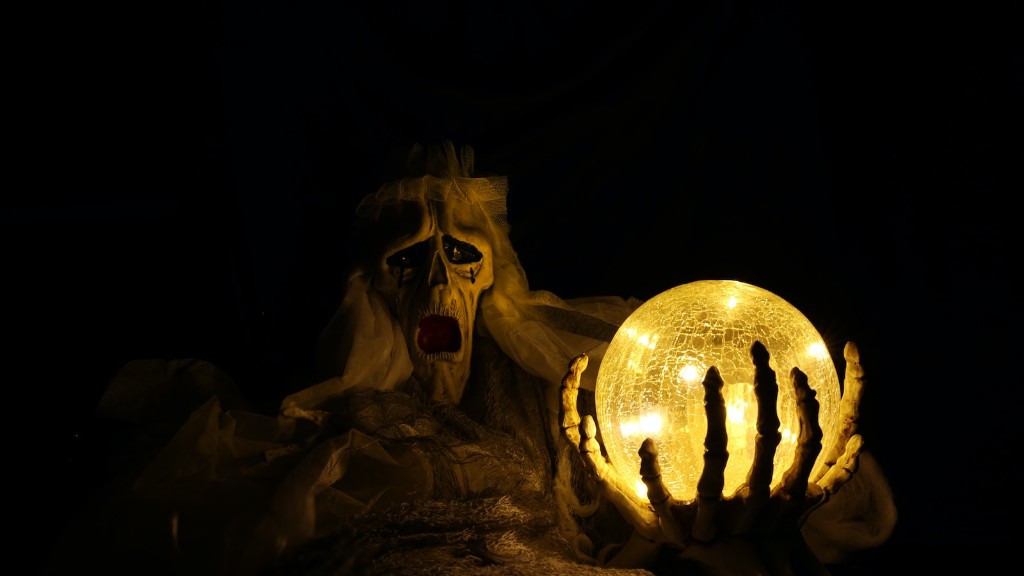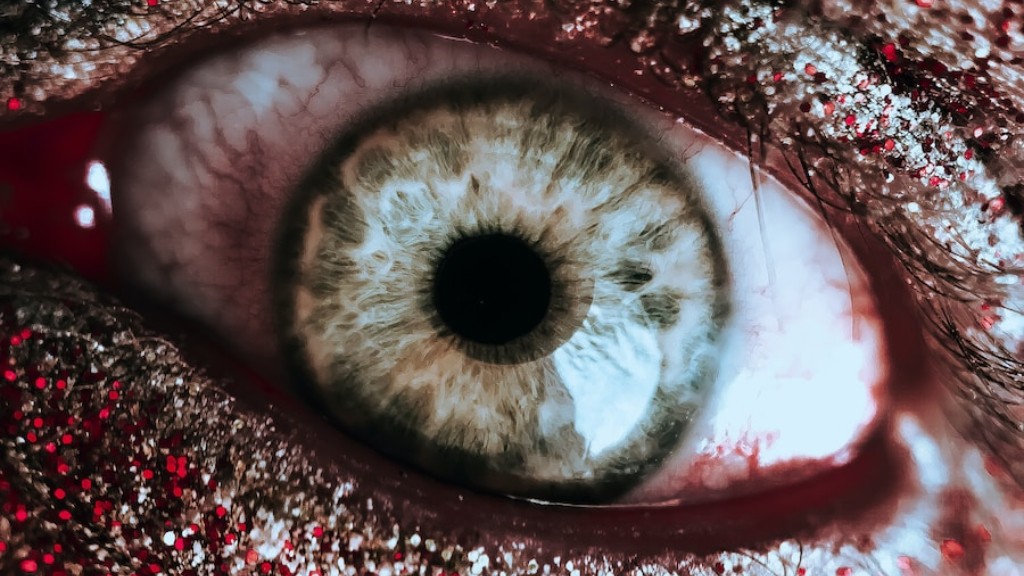Horror movies have been known to cause nightmares and sleepless nights, but can they also cause hallucinations? Some people believe that watching horror movies can trigger a mental state that leads to hallucinations. While there is no scientific evidence to support this claim, there are a few theories as to how it could happen. One theory is that the intense fear experienced during a horror movie can cause the release of adrenaline and other stress hormones. These hormones can then lead to changes in the brain that can cause hallucinations. Another theory is that the jump scares and unexpected noises in horror movies can cause the brain to misinterpret what it is seeing and hearing, leading to hallucinations. Whatever the cause, it is clear that horror movies can have a powerful effect on the mind.
It’s unlikely that watching a horror movie would cause hallucinations. Hallucinations are usually caused by a medical condition, drug use, or sleep deprivation.
Can horror films have side effects?
It is important to be aware of the potential risks of watching horrific images, as they can trigger unwanted thoughts and feelings, and increase levels of anxiety or panic. Additionally, watching such images can increase our sensitivity to startle-eliciting stimuli, making those of us who are anxious more likely to respond negatively and misinterpret the sensations as real threats. If you are feeling particularly anxious or vulnerable, it may be best to avoid watching horrific images altogether. However, if you do choose to watch them, it is important to do so mindfully, and with the understanding that you may experience some negative consequences as a result.
It is well known that film viewing can have a profound effect on an individual’s mental state. In some cases, it has been shown that extreme cases of behavior can result from film viewing. In particular, psychotic disorders have been associated with the viewing of certain films. Symptoms of these disorders can include dissociative phenomena, anxiety states, and paranoid ideation. These symptoms are often triggered by the narrative or imagery of the film.
What effects do horror movies have on the brain
The results of multiple studies show that watching scary scenes can increase the level of adrenaline in the brain, resulting in faster reaction times, better alertness, improved concentration, and a host of other advantages. So if you’re looking for a way to give yourself a mental edge, consider heading to the nearest horror movie theater!
Binge-watching horror movies can have a negative impact on your health. Research suggests that it can increase the regularity of adrenaline in the body, worsening issues with sleep. It can also be an obsessive and compensatory behavior. If you are concerned about your health, it is best to limit your exposure to horror movies.
Why do I feel weird after watching horror movies?
During a horror movie, our brains release adrenaline in order to prepare our bodies for a potential stressful situation. Our sympathetic nervous system kicks in and causes us to go into the “fight or flight” response. This means that our hearts rate increases, we start to breathe more quickly, and our muscles tense up in order to be ready to either fight the threat or run away from it.
PTSD symptoms are not caused by exposure to media, television, movies, or pictures. However, exposure to these things can trigger symptoms in people who have already been diagnosed with PTSD. Symptoms of PTSD include re-experiencing the trauma through intrusive distressing recollections of the event, including flashbacks and nightmares.
What is the number one cause of psychosis?
There is no single cause of psychosis. It may be a symptom of a mental illness, such as schizophrenia or bipolar disorder. However, a person may experience psychosis and never be diagnosed with any mental disorder. Psychosis may be caused by a combination of genetic and environmental factors.
Psychopaths tend to have a reduced startle response in fear-evoking situations. This means that they are less likely to jump out of their skin in response to a sudden fright. Experiments have shown that psychopaths react far less intensely to fear-inducing stimuli than people with normal mental health. This reduced startle response may be one of the reasons why psychopaths are often unphased by violence and may even be attracted to dangerous situations.
Can horror movies cause paranoia
It is important to be aware of the potential dangers of dabbling in the dark arts. Other potentially long-term and dangerous effects include paranoia, irrational fears, and an interest in the paranormal or demonology. These are things that aren’t psychologically healthy for the mind, and can have a lasting negative impact.
Horror entertainment can help people to feel more alive by triggering the fight-or-flight response. This response comes with a boost in adrenaline, endorphins, and dopamine, which can help the brain to better process its surroundings. For people who enjoy horror movies, this knowledge of personal safety can be one of the reasons why they keep watching them.
What do you call a person who loves horror movies?
Horror fans can be classified into three groups based on their preferred type of content: Adrenaline Junkies, White Knucklers, and Dark Copers.
Adrenaline Junkies are attracted to the more intense and graphic content, enjoying the feeling of being on the edge of their seat. White Knucklers prefer suspenseful and spooky content, enjoying the suspense and scares without the gore. Dark Copers are a newly identified type of horror fan who use horror as a way to cope with their own anxieties and problems. They find comfort in the darkness and excitement of the genre.
Horror movies are designed to scare us, and they are usually very successful at doing so. These long-ago experiences have granted people a highly responsive, albeit mostly unconscious, threat detection system. Because horror movies do such a good job at simulating threatening situations, this means our emotional responses to them are similar to those we’d experience if we encountered a real-life threat.
While some people enjoy feeling scared in a controlled setting, others find horror movies to be too intense and upsetting. Either way, it’s important to remember that these movies are not real and that we are safe when we watch them.
Why you shouldn’t watch horror movies at night
If you’re having trouble sleeping, it might be best to avoid watching suspenseful shows late at night. That’s because all that suspense can increase physiological arousal in your body — the opposite of what helps you feel sleepy, Lindgren says. “It can be hard to go to sleep because you’re trying to get the body to do two different things at the same time,” she says.
One recent study found that watching scary movies may help people with anxiety feel more in control. Clasen found that anxious people may get better at handling their own anxiety by watching scary movies. He explains that there may be a relief in seeking out situations that give you a blast of well-defined fear with a clear source and a crucial element of control.
What should you not do in a horror movie?
Don’t do any of the following in a horror movie if you want to make it out alive:
1. Don’t say, “I’ll be right back.”
2. Don’t follow the scary voice or creepy shadow.
3. Don’t assume the bad guy is dead.
4. Don’t answer the phone.
5. Don’t put the knife, gun, or cricket bat down.
6. Don’t go into the basement alone.
7. Don’t take a shower.
8. Don’t investigate strange noises.
9. Don’t split up.
10. Don’t forget to check the back seat.
It’s important to be aware that films can act as a trigger for those who have experienced trauma in their lives. While some may be able to watch a movie about a traumatic event and not be affected, others may find themselves feeling incredibly triggered and re-experiencing the trauma. This can lead to a deterioration in mental health and well-being. If you are someone who is triggered by films, it’s important to be aware of this and take care of yourself. Seek out support if you need it, and be mindful of what films you watch.
Final Words
There is no scientific evidence to support the idea that horror movies can cause hallucinations. However, some people may be more susceptible to experiencing hallucinations after watching a horror movie due to factors such as sleep deprivation, stress, anxiety, or use of drugs or alcohol.
While there is no scientific evidence to support the notion that watching horror movies can cause hallucinations, it is possible that people who are predisposed to mental health conditions may be triggered by watching scary films. If you experience any sort of hallucinations after watching a horror movie, it is best to consult with a mental health professional to rule out any underlying conditions.


